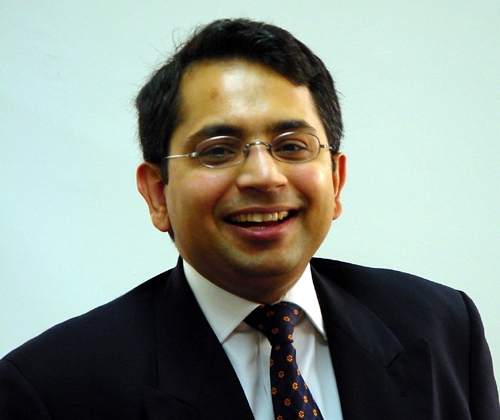How to Prepare for the Super Convergence: the Bio-Info-Nano Singularity?
London, UK - 3rd January 2015, 09:20 GMT
More than a century ago, in 1900, Lord Kelvin famously stated, "There is nothing new to be discovered in physics now. All that remains is more and more precise measurement." Five years later, Albert Einstein published his paper on special relativity, which challenged the very simple set of rules laid down by Newtonian mechanics, which had been used to describe force and motion for more than two hundred years.
 Bio-Info-Nano Singularity
Bio-Info-Nano Singularity
Asymmetric Opportunities and Risks
Information and communication technologies -- of all kinds -- double their power measured in terms of price performance, capacity and bandwidth almost every year. As a result, we are witnessing accelerating trends of exponential growth in the Bio-Info-Nano (BIN) revolution unfolding all around us. Just as soon as we have grasped the relevance of some new BIN innovation, we are challenged by yet more extraordinary discoveries and inventions that completely overwhelm our expectations and understanding. The paradigm shifts, taken together, present asymmetric opportunities for unparalleled growth as well as rising asymmetric risks for humankind's globalised structure, its sustainability and longevity. This phenomenon of constant acceleration in new technologies is referred to as the Bio-Info-Nano Singularity by ATCA 5000 and Quantum Innovation Labs seeks to leverage this opportunity from an investment perspective.
Super Convergence of The Bio-Info-Nano (BIN) Singularity
The rise of the BIN Singularity suggests that technological progress is reaching such an extremely high, near infinite, value at a point in the near future that it will be impossible to predict what happens next based on extrapolations of past experience. In fact, that experience may be an obstacle to grasping the paradigm shift, which is forcing a multi-generational change. A Singularity is a point at which an otherwise continuous mathematical progression becomes infinite, implying that all continuous extrapolation breaks down beyond that point.
Known and Unknown Unknowns Multiply
Dramatic changes in the rate of world economic growth have occurred in the past because of technological advancement. Based on population growth, the global economy doubled every 250,000 years from the Palaeolithic era until the Neolithic Revolution. This new agricultural economy began to double every 900 years, a significant increase. In the current era, beginning with the Industrial Revolution, the world’s economic output has doubled as an average, every fifteen years, sixty times faster than during the agricultural era. As the rise of the Bio-Info-Nano (BIN) Singularity causes a similar revolution one could expect economic output to double much faster with the requirement for remarkably little human labour or intervention, and this may challenge our assumptions for future global economic growth and stability. It may not be business as usual because the resources of the planet to sustain humanity are finite.
Reverse Engineering The Human Brain
The human capacity for information processing is limited, yet there is an accelerating change in the development and deployment of new technology. This relentless wave upon wave of new information and technology causes an overload on the human mind by eventually flooding it. The resulting acopia -- inability to cope -- has to be solved by the use of ever more sophisticated information intelligence which reverse engineers the human brain. Extrapolating these capabilities suggests the near-term emergence and visibility of self-improving neural networks, sophisticated artificial intelligence, quantum algorithms, quantum computing and super-intelligence. This metamorphosis is so much beyond present human capabilities that it becomes impossible to understand it with the pre-conceptions and conditioning of the present mindset, societal make-up and existing technology.
Thinking In New Ways
At some point in the not too distant future, non-biological intelligence will combine the subtlety and pattern recognition strength of human intelligence, with the speed, memory, and knowledge sharing of machine intelligence. This new generation of human-like and transhuman machines capable of performing mental and physical tasks as capably as humans and better are likely to cause a rise in wages for a few extraordinary jobs at which humans can still outperform machines. However, a proliferation of human-like machines is likely to cause a net drop in ordinary wages, as humans compete with robots and soft-bots for jobs. Also, the wealth of the technological singularity may be concentrated in the hands of a few who own the means of mass producing the intelligent robot and soft-bot workforce. The Bio-Info-Nano Singularity is a transcendence to a wholly new regime of mind, society and technology, in which we have to learn to think in a new way in order to survive as a species. Why? Non-biological intelligence will continue to evolve exponentially whereas biological intelligence is effectively limited and fixed in terms of physical boundary conditions unless it begins to explore its connectivity with the infinite.
Intelligence Explosion
I J Good, in 1965, first wrote of an "intelligence explosion", suggesting that if machines could even slightly surpass human intellect, they could improve their own designs in ways unforeseen by their designers, and thus recursively augment themselves into far greater intelligences. The first such improvements might be small, but as the machines become more intelligent they would self-innovate, which could lead to a cascade of self-improvements and a sudden surge towards super-intelligence. This could now happen via the Bio-Info-Nano Singularity.
Modelling The Future
Vernor Vinge, in 1982, proposed that the creation of smarter-than-human intelligence represented a breakdown in humans' ability to model their future. The argument was that authors cannot write realistic characters who are smarter than humans. If humans could visualise smarter-than-human intelligence, we would be that smart ourselves. Vinge named this event "the Singularity". He compared it to the breakdown of the prevalent model of physics when it was used to model the gravitational Singularity beyond the event horizon of a black hole.
Sudden Growth
Ray Kurzweil, in 1999, generalised the Singularity to apply it to the sudden growth of any technology -- in a similar way to ATCA 5000's Bio-Info-Nano Singularity Super Convergence -- not just intelligence. He argued that Singularity is inevitably implied by a long-term pattern of accelerating change that generalises Moore's law to technologies predating the integrated circuit, and includes material technology especially as applied to nanotech, medical technology and other disciplines.
Methuselarity
Aubrey de Grey, in 2000, applied the term "Methuselarity" to the point at which medical technology improves so fast that expected human lifespan increases by more than one year per year.
Quantum Jumps in Economic Growth
Robin Hanson, in 2008, taking the term "Singularity" as opposed to "Paradigm Shift" to refer to sharp increases in the exponent of economic growth, lists the agricultural and industrial revolutions as past singularities. Although, his use of the term Singularity may be disputed. Extrapolating from such past events, Hanson suggests that the next economic Singularity should increase economic growth between 60 and 250 times. He conveniently ignores the resource constraints. Innovations, manifest as a result of the Bio-Info-Nano Singularity's approach, that allow for the replacement of virtually all human labour and material resources, could supposedly trigger such an event.
Redundancy & Irrelevance
The key question: What is globalised human society going to do with the mass of under-employed or unemployed human beings that are rendered irrelevant or redundant by the fast approaching Super Convergence of the Bio-Info-Nano Singularity?
Conclusion
We continue to strive to understand and to facilitate the ethical research, development and deployment of exponentially advancing Bio-Info-Nano (BIN) technologies for the benefit of the environment and humankind. We seek to work together both within the ATCA 5000 and beyond to apply, to focus and to guide these neo-renaissance Bio-Info-Nano tools to address humanity’s collective grand challenges in the 21st century. Much remains to be done to communicate the critical ethics, risks, effects and potential benefits of Bio-Info-Nano (BIN) technologies to the world at large. Promoting BIN advances through the creation of new businesses, new research directions and new collaborations remains central to our vision.
[STOPS]
What are your thoughts, observations and views? We are keen to listen and to learn.
Best wishes

D K Matai
ATCA: The Asymmetric Threats
Contingency Alliance is a philanthropic expert initiative founded
in 2001 to resolve complex global challenges through collective
Socratic dialogue and joint executive action to build a wisdom
based global economy. Adhering to the doctrine of non-violence,
ATCA addresses asymmetric threats and social opportunities arising
from climate chaos and the environment; radical poverty and microfinance;
geo-politics and energy; organised crime & extremism; advanced
technologies -- bio, info, nano, robo & AI; demographic skews
and resource shortages; pandemics; financial systems and systemic
risk; as well as transhumanism and ethics. Present membership
of ATCA is by invitation only and has over 5,000 distinguished
members from over 120 countries: including 1,000 Parliamentarians;
1,500 Chairmen and CEOs of corporations; 1,000 Heads of NGOs;
750 Directors at Academic Centres of Excellence; 500 Inventors
and Original thinkers; as well as 250 Editors-in-Chief of major
media.
The Philanthropia, founded in 2005, brings together over
1,000 leading individual and private philanthropists, family offices,
foundations, private banks, non-governmental organisations and
specialist advisors to address complex global challenges such
as countering climate chaos, reducing radical poverty and developing
global leadership for the younger generation through the appliance
of science and technology, leveraging acumen and finance, as well
as encouraging collaboration with a strong commitment to ethics.
Philanthropia emphasises multi-faith spiritual values: introspection,
healthy living and ecology. Philanthropia Targets: Countering
climate chaos and carbon neutrality; Eliminating radical poverty
-- through micro-credit schemes, empowerment of women and more
responsible capitalism; Leadership for the Younger Generation;
and Corporate and social responsibility.

